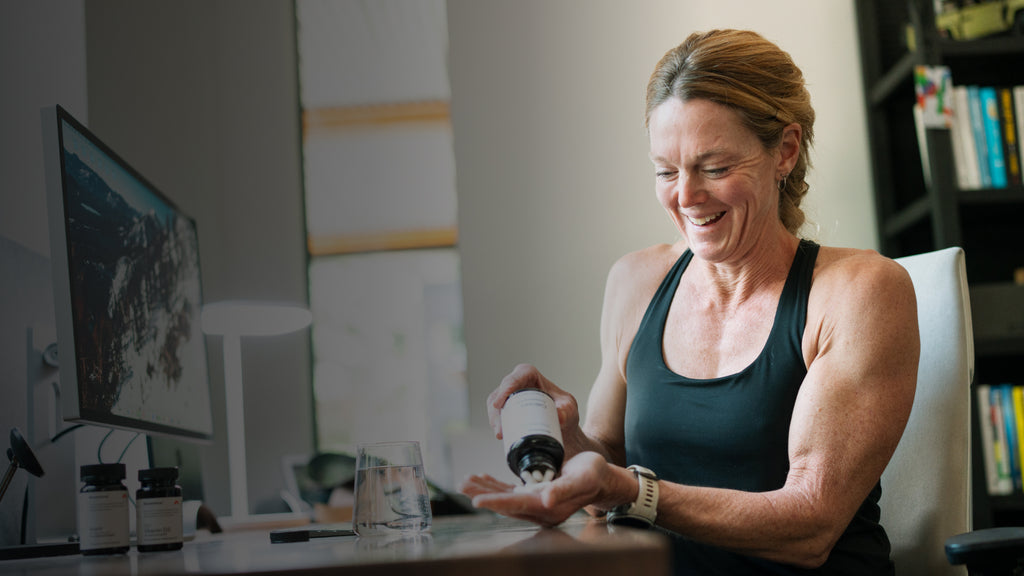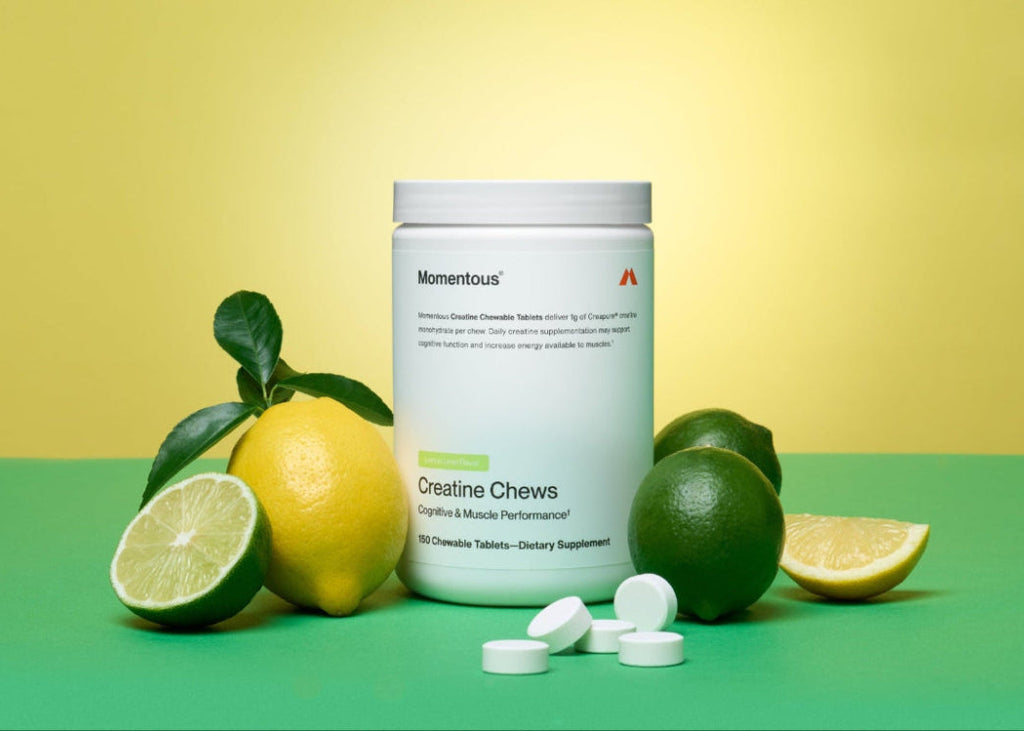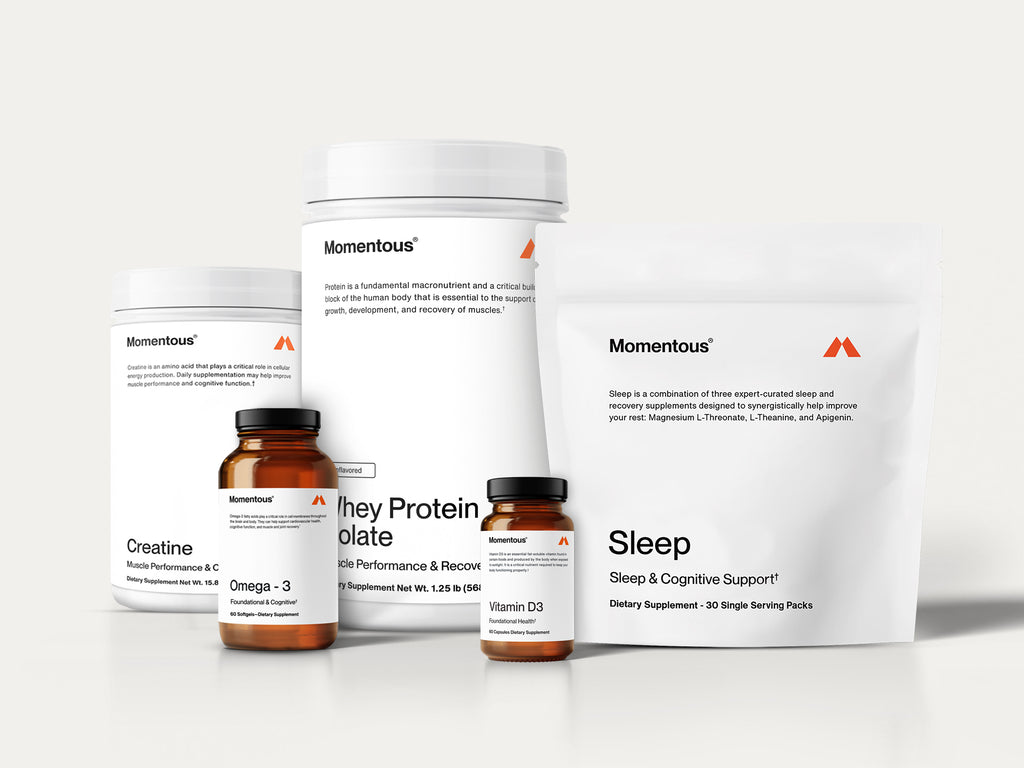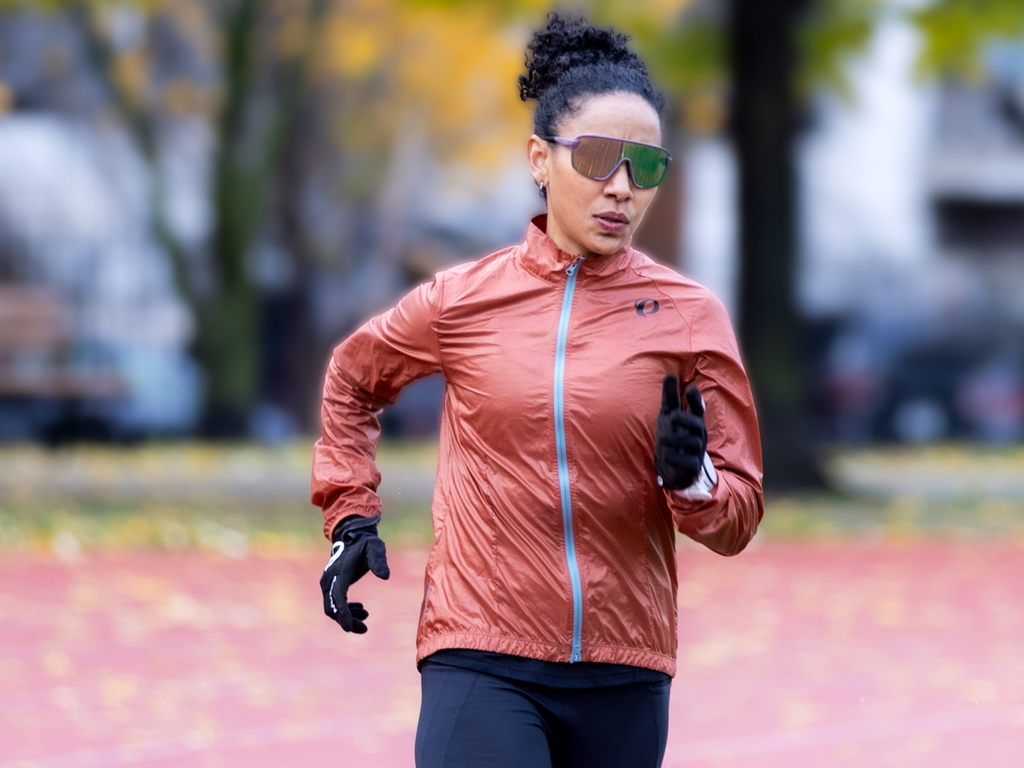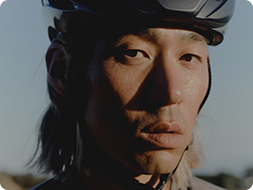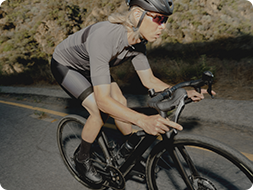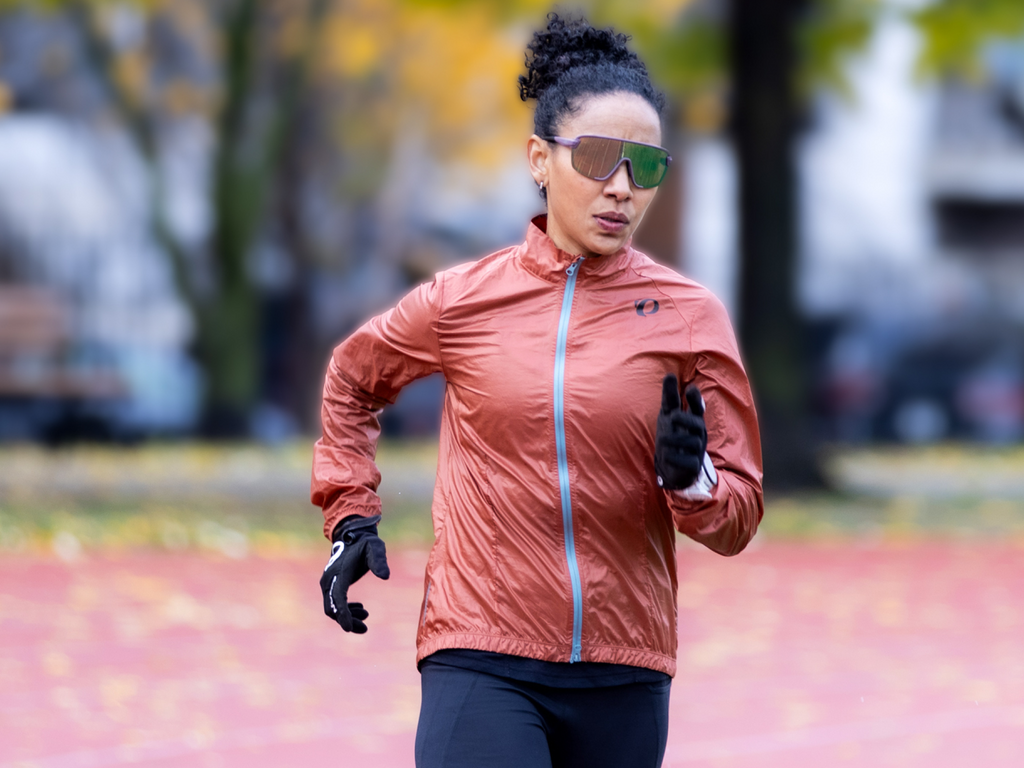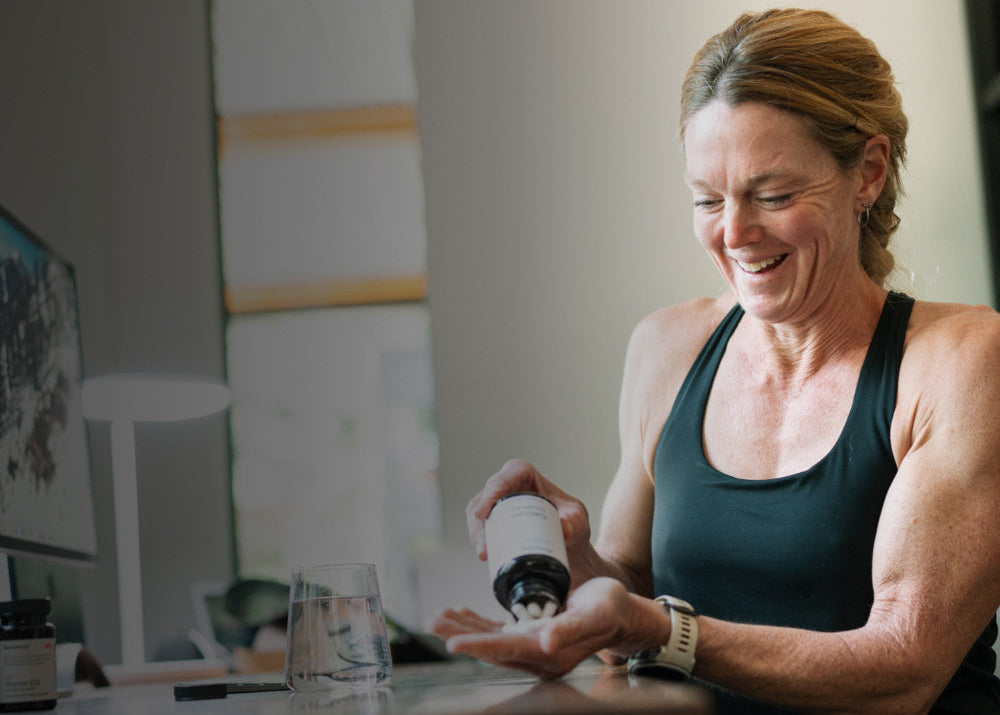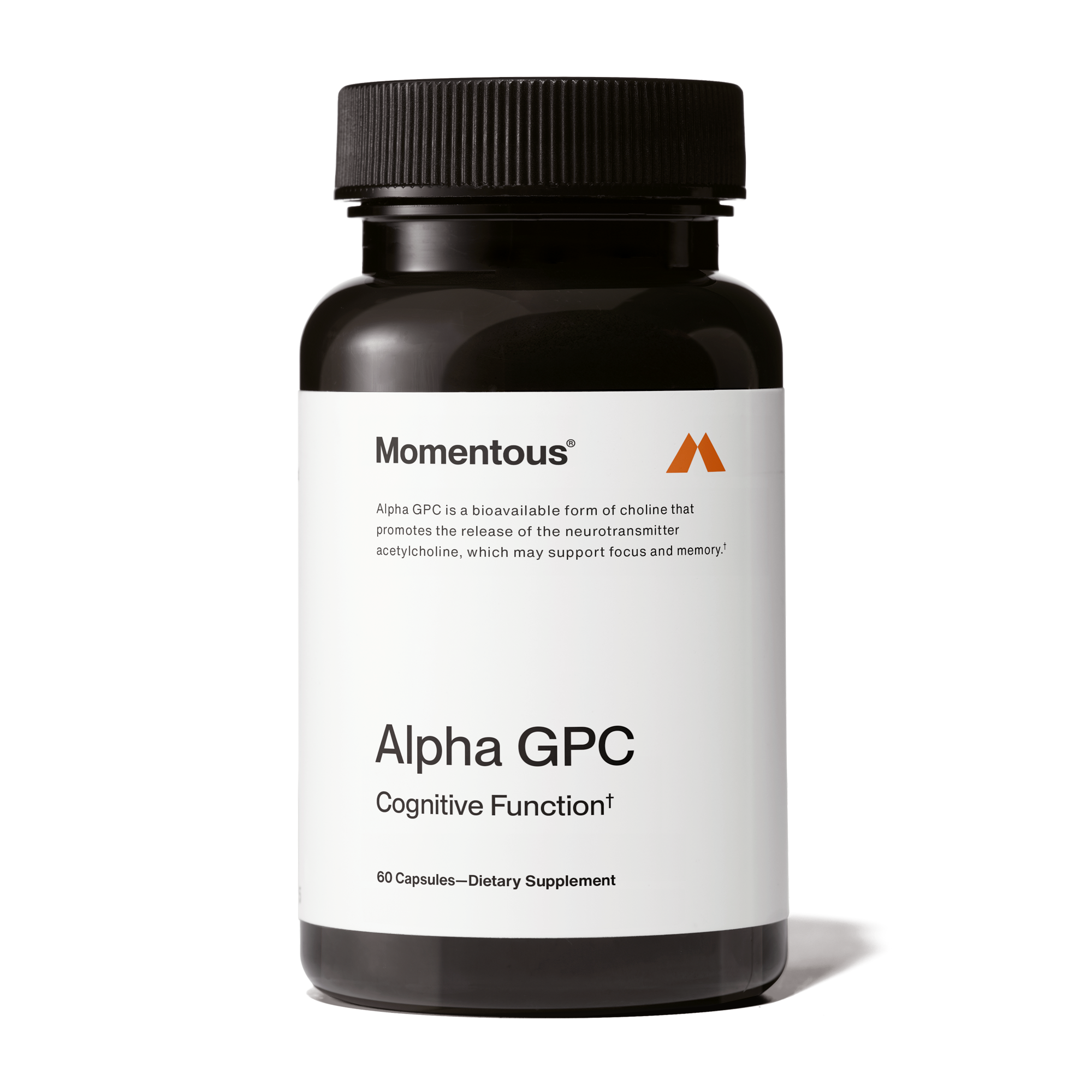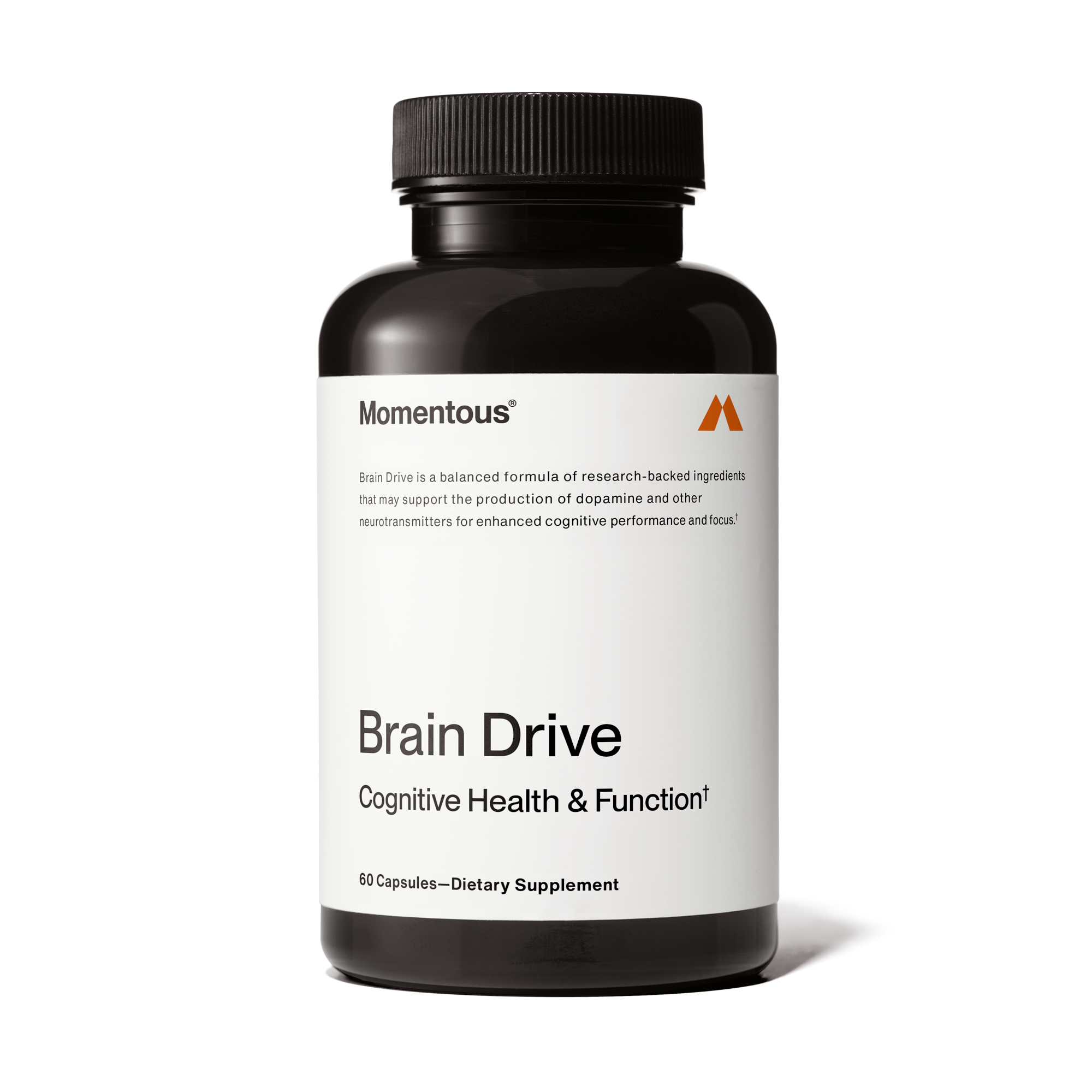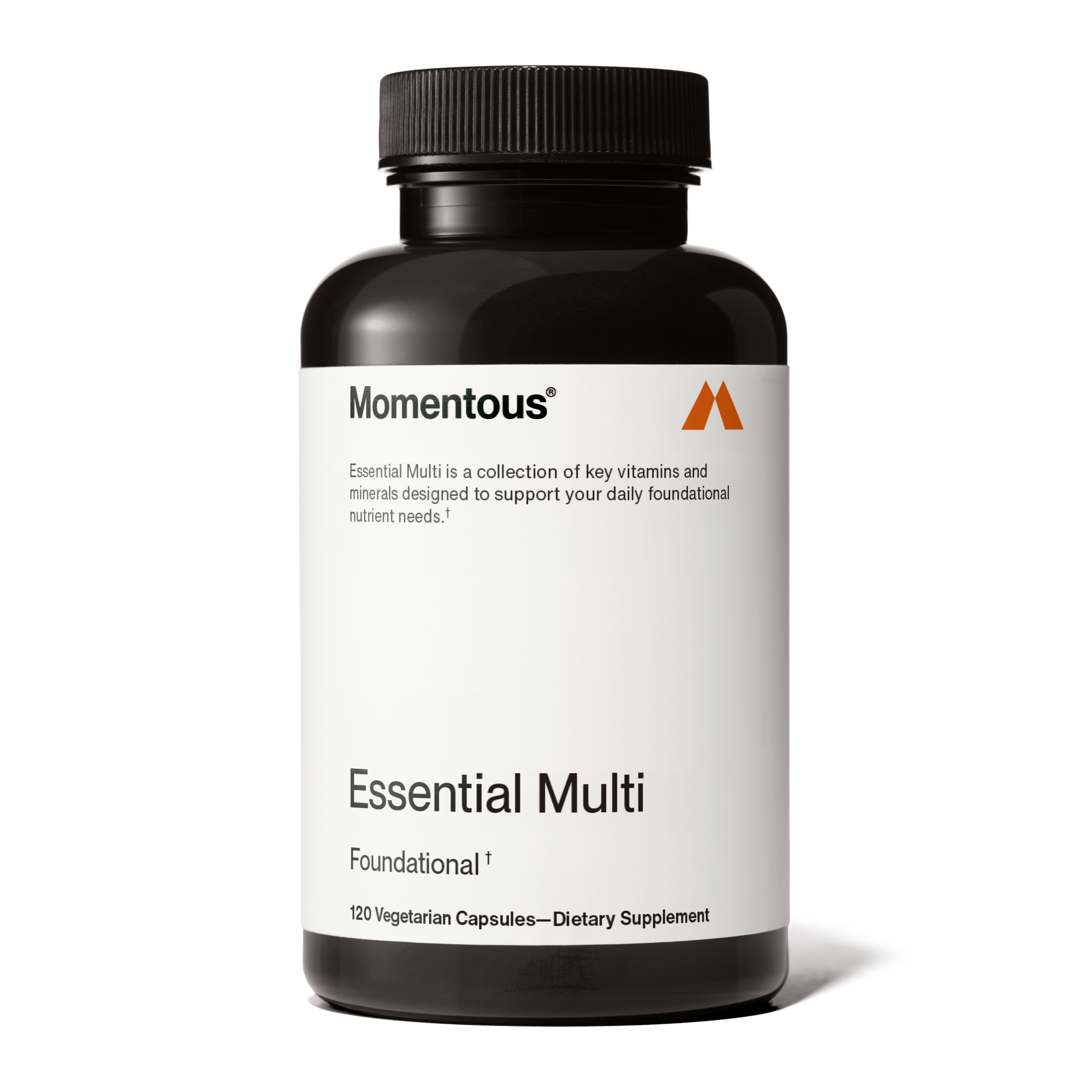Choline source that supports memory, focus + brain health
Daily nootropic blend for clarity, productivity + cognitive function
Whole-food–based formula to fill nutrient gaps for daily health
Between early WFH meetings and, if you’re a parent, getting your kids ready for remote, hybrid, or in-person learning, mornings have become more challenging than ever. No matter how hectic your morning might have become, there are some tried and true ways to get yourself into the right groove from the moment your alarm goes off. Here are some hints for gaming your morning routine.
1) Eat a High-Protein, High-Fat Breakfast
One of the most potent ways to regulate your chronobiology is through what’s known as your “food clock.” This isn’t something you’d put on your kitchen counter, but rather how your meal timing helps keep your sleep/wake cycle regular. This is why eating in the morning can signal to your brain that it’s time to shake off sleepiness and start your day.
What you eat is just as important as when you eat it. Although cereal is still a popular choice, it’s often loaded with sugar that can lead to a mid-morning crash, contribute to hypertension and other health issues, and fail to keep you full. In contrast, there’s a growing body of evidence to suggest that a breakfast high in protein and fat can give you a better start to the day. A study published in The American Journal of Clinical Nutritionfound that a high-protein breakfast helps regulate hormonal activity, reduce snacking, and increase satiety.[i] A group of scientists from the University of Alabama at Birmingham found that a low-carb, high-fat breakfast stabilizes blood sugar, improves insulin sensitivity, and “may reduce the risk of metabolic disease.”[ii]
2) Seek Sunlight
There’s a good reason that light therapy has become popular among frequent travelers and is often prescribed by sleep experts: the timing of when you’re exposed to daylight and darkness helps keep your circadian rhythms in check and restores them when they get out of whack. That’s why if you want to be more alert in the morning, getting outdoors is one of the best things you can do.
Speaking to M2 Performance Nutrition, Stanford University neuroscientist Andrew Huberman said, “If sunlight reaches your eyes soon after you wake, it triggers a neural circuit that controls the timing of the hormones cortisol and melatonin, which affect sleep. It doesn’t matter whether you’re a night owl or a morning dove – the important thing is to get some sun for at least a few minutes soon after getting out of bed.”
Squeezing in some early sun doesn’t just benefit you in the morning. It might seem logical that tackling insomnia is only related to what goes on in the evening, but in fact, research suggests that daytime sunlight exposure can help remedy such sleep issues, too. In a paper published in Environmental Health Perspectives, the author writes, “When people are exposed to sunlight or very bright artificial light in the morning, their nocturnal melatonin production occurs sooner, and they enter into sleep more easily at night.”[iii]
Can’t get outside for whatever reason? Then open your blinds, curtains, and shades to let as much sunlight in as possible and turn on all your lights to help signal to your brain that it’s time to wake up and get going.
3) Embrace Morning Movement
Some people, such as members of the military and college athletes, have no choice but to exercise in the morning. But for many of us, it’s hard to come to grips with the idea of jumping out of bed and going straight into a workout. But if you can fit a quick dose of morning movement into your routine, you might not only improve your physical health, but also improve your mental performance. A study released via the British Journal of Sports Medicineconcluded that participants who included moderate intensity exercise in their morning routine improved their working memory and overall executive cognitive function.[iv]
Want to get even more from your morning run or workout? Combine this tip with the one above and take your morning activity outside whenever possible. If you don’t have time for a full session, try doing a couple of mobility exercises or a few sun salutations and other yoga poses to usher in the new day.
4) Come to Grips with Cold
There’s a time and place for winding down and activating a parasympathetic (aka “rest and digest”) response. But that’s for later in the day, not when you’ve just gotten out of bed bleary-eyed and need to get the kids off to school and yourself ready for the first Zoom meeting of the day. A cold shower is a sure-fire way to jumpstart your body and brain first thing in the morning. A study published in Medical Hypotheses noted that, “Exposure to cold is known to activate the sympathetic nervous system.”[v] After you get over the initial shock of being in cold water, it will likely make you feel better because it also prompts the release of alertness promoting noradrenaline, “happy hormone” beta-endorphin, and other brain chemicals.
If you’re still sore from yesterday’s exertions and have a little extra time, try getting in a hot bath, sauna, or hot tub before you hit the cold shower so you can reap the full benefits of contrast therapy. In a hurry? Then simply run the shower warm for a couple of minutes before switching to a blast of cold.
[i] Heather J. Leidy et al, “Beneficial Effects of a Higher-Protein Breakfast on the Appetitive, Hormonal, and Neural Signals Controlling Energy Intake Regulation in Overweight/Obese, ‘Breakfast-Skipping,’ Late-Adolescent Girls,” The American Journal of Clinical Nutrition, April 2013,available online at https://www.ncbi.nlm.nih.gov/pmc/articles/PMC3718776/.
[ii] Nikki C. Bush et al, ” A High-Fat Compared with a High-Carbohydrate Breakfast Enhances 24-Hour Fat Oxidation in Older Adults,” Journal of Nutrition, February 2018,available online at https://academic.oup.com/jn/article/148/2/220/4913034.
[iii] M. Nathaniel Mead, “Benefits of Sunlight: A Bright Spot for Human Health,” Environmental Health Perspectives, April 2008, available online at https://www.ncbi.nlm.nih.gov/pmc/articles/PMC2290997/#:~:text=The%20melatonin%20rhythm%20phase%20advancement,affected%20by%20exposure%20to%20daylight.
[iv] Michael J Wheeler et al, “Distinct Effects of Acute Exercise and Breaks in Sitting on Working Memory and Executive Function in Older Adults: A Three-arm, Randomised Cross-Over Trial to Evaluate the Effects of Exercise With and Without Breaks in Sitting on Cognition,” British Journal of Sports Medicine, 2018, available online at https://bjsm.bmj.com/content/54/13/776.
[v] Nikolai A. Shevchuk, “Adapted Cold Shower as a Potential Treatment for Depression,” Medical Hypotheses, available online at https://www.sciencedirect.com/science/article/abs/pii/S030698770700566X.
